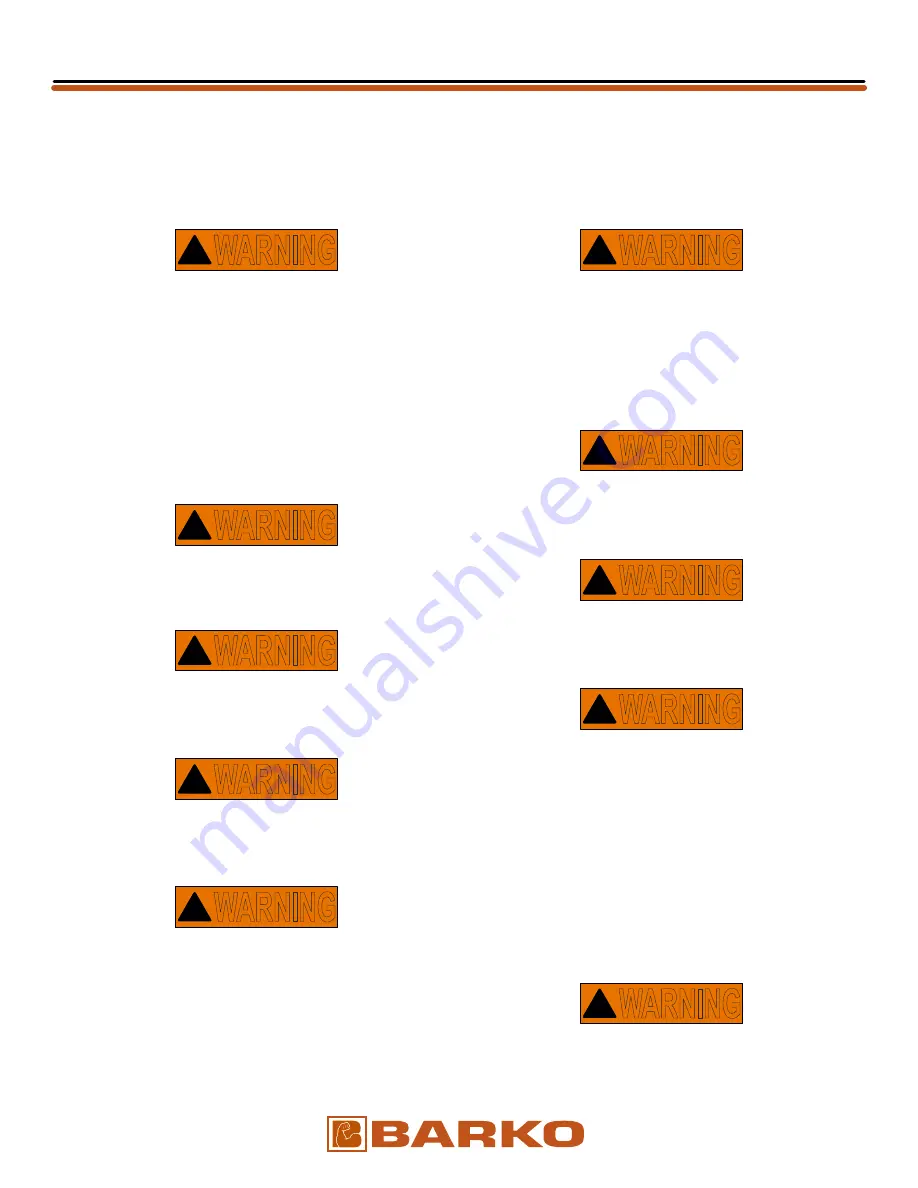
10-14
®
FIRE PREVENTION
Always keep a fire extinguisher and first aid kit where
they can be easily reached in case of fire and keep
these items properly maintained.
Ÿ
Operating personnel should be instructed on what to
do in case of fire and be required to demonstrate how
to use fire extinguisher and fire suppression equipment.
Ÿ
Any portable fire extinguisher or fire suppression
system carried on the machine that has been used,
should be recharged or replaced before the machine
resumes operating. Fire extinguisher manufacturers
recommended service intervals should be followed.
Allow machine to cool down by idling the engine for a
while before shut-down.
Many engine and transmission
fires start after shut-down.
Do not use the machine in areas with explosive dust
or gases that can be ignited by arcs, sparks, hot
components, or exhaust fumes.
Read the Engine Manual that comes with every
machine for complete engine operating and engine
safety instructions.
Before adding fuel, shut down the engine and allow it
to cool.
Never smoke while handling fuel or working on
either the fuel or the hydraulic system.
Daily inspect all fuel and hydraulic oil tubes, hoses,
and fittings for damage and leakage.
Tighten or
replace as necessary. Always clean fluid spills.
Do not use ether or starting fluids on diesel engines
with glow plugs.
These starting aids can explode and
injure bystanders
.
Daily inspect the machine for flammable debris,
removing any twigs, leaves, straw, rags, fluid spills or
leaks, dirt or grime.
Pay special attention to areas such
as the engine, engine cooling system, exhaust system,
battery, electrical connections, brake systems, transmission
/drivetrain, fuel system and hydraulic system. Clean as
often as necessary to help prevent overheating and
combustion.
The electrical system (battery, electrical connections,
etc.) can be a source of arcs or sparks if damaged or
incorrectly maintained.
Daily inspect all electrical wiring
and connections for damage. Keep the battery terminals
clean and tight. Replace or repair any damaged part.
Use proper battery connection and disconnection
procedures.
This machine may have several components which are at high temperatures under normal operating
conditions, such as the engine, exhaust system, brake system and transmission.
Ÿ
Clean the machine often. High pressure washing of the machine is suggested every 1000 hours (or 6 months)
and always after a spill.
The following list of hazards provides information which will help to prevent fires:
WARNING
!
WARNING
!
WARNING
!
WARNING
!
WARNING
!
WARNING
!
WARNING
!
WARNING
!
WARNING
!
WARNING
!
Before doing welding of any kind, clean machine and
disconnect battery cables.
Ÿ
Cover rubber hoses, battery, and other flammable
parts.
Ÿ
Never ground an arc welder or electrical accessories
through turntable or boom bearings as arcing may
occur causing bearing damage.
Do not weld on any structural member unless specifically
authorized by Barko Hydraulics. Any unauthorized welding
or welding procedures will void the warranty, and may
cause structural damage.
07/12/2018
Updated
OPERATOR’S
Summary of Contents for 295B
Page 4: ...THIS PAGE INTENTIONALLY BLANK SUPERIOR WI USA www barko com...
Page 6: ...THIS PAGE LEFT INTENTIONALLY BLANK...
Page 27: ...THIS PAGE LEFT INTENTIONALLY BLANK...
Page 60: ...THIS PAGE LEFT INTENTIONALLY BLANK...
Page 64: ...THIS PAGE LEFT INTENTIONALLY BLANK...






































